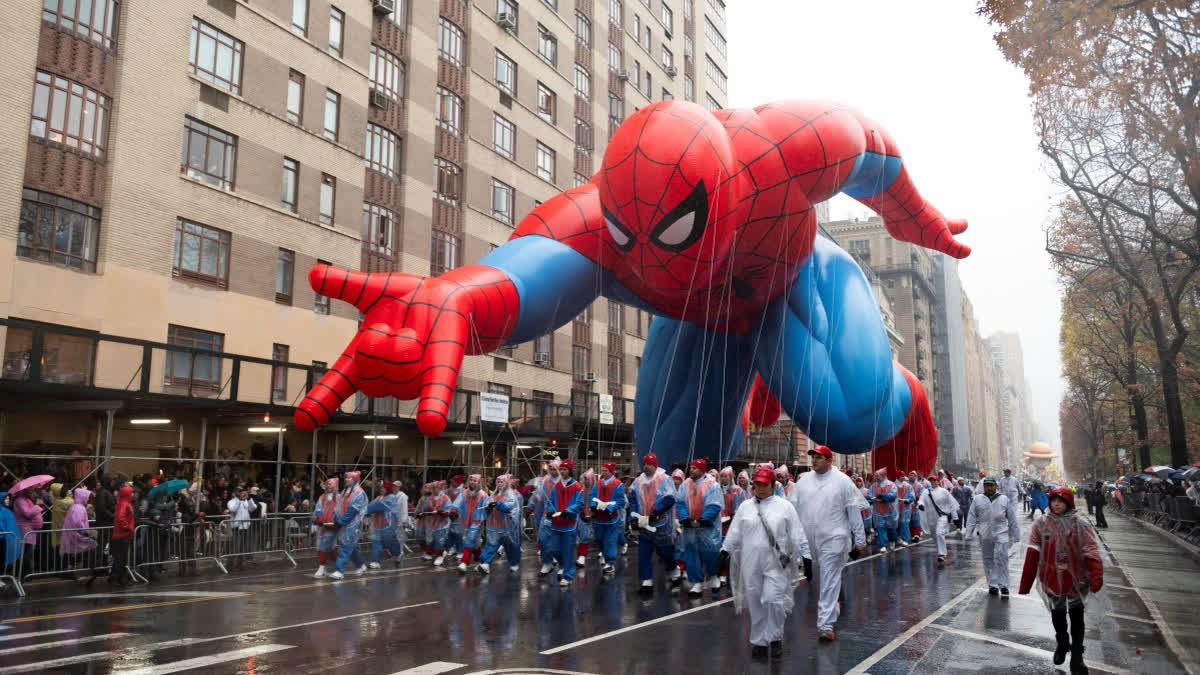It’s the classic trope we have seen countless times – a hero rises against a villain, delivering swift justice through punches, explosions, and epic battles. From The Avengers assembling to save the world, to Batman facing off against the Joker in The Dark Knight, these stories captivate audiences of all ages. But beneath the thrilling action sequences lies a deeper question – what message do these narratives send to children?
At first, these tales of good versus evil seem like a perfect way to teach children moral lessons. Heroes are brave, selfless, and always win in the end—qualities any parent would want their child to match. But the means by which heroes achieve their victories often involve violence, destruction, and a 'the-end-justifies-the-means' mentality. For impressionable young minds, this can blur the lines between acceptable and unacceptable behavior. These action heroes can negatively influence children's minds.
What is the study?
According to a new study done at Université de Montreal’s School of Psychoeducation, boys exposed to violent screen content in the preschool years were more likely to become antisocial and violent themselves a decade later, in their mid-teens. "We studied such risks in mid-adolescence," explained Pagani, a researcher at the Centre de recherche Azrieli du CHU Sainte-Justine.
The longitudinal study of less than three decades evaluated 2000 children including girls and boys. Children who were exposed to violent content on TV developed antisocial behavior eleven years later. Being exposed to violent content in early childhood predicted later aggressive behaviors such as hitting or beating another person, to obtain something, or stealing, with or without any apparent reason.
"Violence is characterised by anything from physical aggression, verbal aggression, and relational aggression depending on situations that intentionally attempt or cause harm to others," says Pegani. She further adds that "Children are attracted to fast-paced, stimulating violent content, which often features appealing characters like superheroes who commit and are rewarded for aggressive acts, which increases the likelihood of exposure," she explains.
What kids see vs what kids learn
Consider popular superhero films like Spider-Man: No Way Home or Black Panther. While these movies showcase themes of responsibility, resilience, and justice, they also heavily rely on physical confrontations to resolve issues. For a child, the takeaway might not be the hero’s noble intentions but the flashy battles and fights.
Even animated films are not exempt from this pattern. Take Disney’s The Lion King. The climactic battle between Simba and Scar is a visually beautiful moment, but it also reinforces the idea that defeating an enemy requires force. Such scenes can leave children with the impression that confrontation is the primary way to address problems.
Binge watching violence
Back in 1971 when the iconic A Clockwork Orange was released it was revered as a cinematic masterpiece for its dystopian narrative and striking visuals. However, its graphic depictions of violence sparked fierce debate – how does exposure to such content affect children? Cut to today, and the questions remain just as relevant – if not more so – in a time dominated by streaming platforms and endless media consumption. Violence on TV is not just entertainment for children, it can be a powerful medium that shapes their behavior, perception and emotional health.
Violence, whether experienced firsthand, witnessed in the home, or observed through media, leaves a strong imprint on children's minds. The impact can shape their emotional, cognitive, and social development, often with long-lasting consequences. In 1961 noted American psychologist conducted the famous Bobo doll experiment where he demonstrated that children tend to imitate aggressive behavior they observe from adults. He showed the concept of observational learning through a model.
The invisible influence
According to the World Health Organization, WHO, exposure to violence can lead to a range of emotional and behavioral issues, including anxiety, depression, aggression, and post-traumatic stress disorder (PTSD). Children who grow up in violent environments are more likely to experience difficulties in school, develop trust issues, and struggle with forming healthy relationships later in life. "Violence in any form can leave a long-lasting impact. Children absorb dynamics around them and that shapes how they perceive the world and their place within it," says Namra Hasan, a child psychologist.
Additionally, violent content on television, video games, and movies not only desensitises children to violence but also impairs their ability to empathise with others. "Repeated exposure to violence rewires the brain and children start to normalise aggressive behavior. They don't see others' suffering with sensitivity. Their brain is too fragile," says Dr. Sumegha Soni, Psychiatrist.
From screen to reality
Apart from movies, children who witness violence in their homes often face the most devastating consequences. According to the National Child Traumatic Stress Network (NCTSN), children who grow up in abusive households are at a higher risk of developing emotional and behavioral problems. They are also more likely to perpetuate cycles of violence as adults, either as victims or perpetrators.
Take for example this case – a 14-year-old Shweta (name changed for privacy), who grew up witnessing her father's physical abuse toward her mother. By the time she was 10, she started exhibiting signs of severe anxiety and aggression toward her classmates and friends. After she was brought for the therapy, her psychologist identified her behavior as a coping mechanism which she learned from her home environment. "Children observe and internalise the chaos around them in the house. They see things in ways that they cannot control and many times start blaming themselves for the situation," says Kazi.
While the study brings back the most debated topic, it is a strong reminder for us as a society to limit childhood exposure to media violence which can have serious, long-lasting consequences. "Parents need to be vigilant about the kind of content their child is consuming. They need to empower their children to make informed choices about their screen exposure," says Dr. Soni.
Read More:



